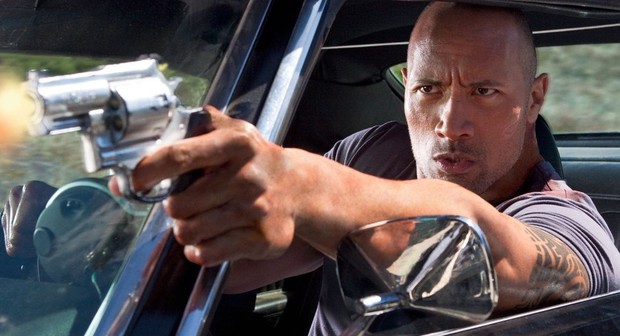Faster (2010): Dwayne Johnson's Grittiest Ride into Vengeance
Faster (2010) marks a turning point in Dwayne Johnson’s career, taking a sharp turn from family-friendly fare into darker, more mature territory. Directed by George Tillman Jr., the film is a lean, stylized revenge thriller that ditches unnecessary exposition in favor of raw intensity. With a minimalistic title and a stripped-down plot, Faster delivers exactly what it promises: fast, brutal retribution.
The story centers on a man known only as "Driver," recently released from prison after serving ten years for a botched bank robbery that led to the death of his brother. Cold and consumed by vengeance, Driver wastes no time. Armed with a revolver and a list of names, he begins executing those responsible for the betrayal and murder of his brother. His mission is simple: no mercy, no hesitation.

Dwayne Johnson plays against type here. Gone are the witty quips and charming smiles—Driver is grim, focused, and nearly silent for most of the film. This performance strips Johnson down to pure physical presence, relying on his intensity and emotion rather than dialogue. It’s a departure that proves surprisingly effective, offering a glimpse into the actor’s versatility.
Parallel to Driver’s rampage, two other characters circle around him. The first is a troubled detective, simply called “Cop,” played by Billy Bob Thornton. Addicted, worn down, and morally ambiguous, Cop is chasing Driver not entirely out of duty, but also for redemption. The second is a slick, philosophical hitman called “Killer,” portrayed by Oliver Jackson-Cohen. Wealthy and eccentric, Killer is hired to take out Driver but sees him as a worthy challenge—more sport than assignment.

These three storylines weave together into a meditation on revenge, justice, and personal reckoning. While the film is packed with car chases, gunfights, and sudden bursts of violence, it also pauses at times for character development. Driver isn't just an executioner; he’s a man grappling with the cost of his mission and questioning what comes next. The addition of a mysterious past and revelations about betrayal give the film more narrative depth than it initially appears to have.
Stylistically, Faster is grounded in a gritty, retro vibe. Its use of saturated colors, quick edits, and wide desert landscapes evokes the mood of 1970s action cinema. The soundtrack, full of tense, pulsing beats, helps maintain a relentless momentum throughout the film.

While Faster received mixed reviews from critics—some citing a predictable plot and shallow secondary characters—many praised its throwback style and Johnson’s no-nonsense performance. It’s a film that knows what it is: a violent, fast-paced action thriller with emotional undercurrents and a stripped-down story.
In conclusion, Faster may not reinvent the revenge genre, but it revitalizes it with sheer force and focus. Dwayne Johnson’s portrayal of a haunted antihero gives the film a solid emotional anchor. For fans of hard-hitting, unapologetic action films with a pulse-pounding edge, Faster delivers exactly what it promises—and it does it fast.



